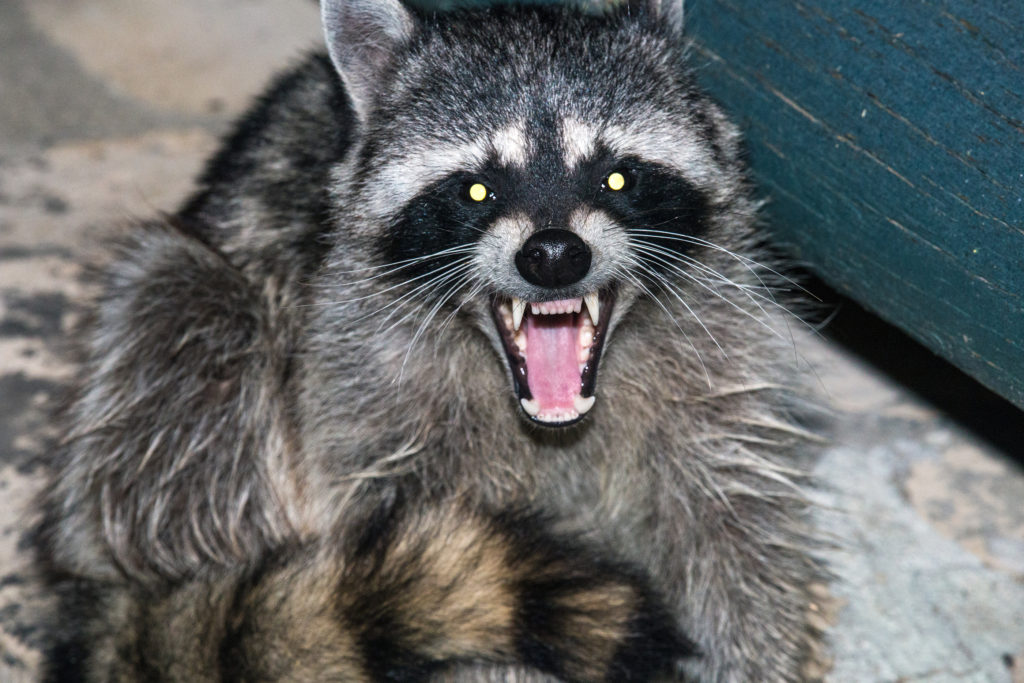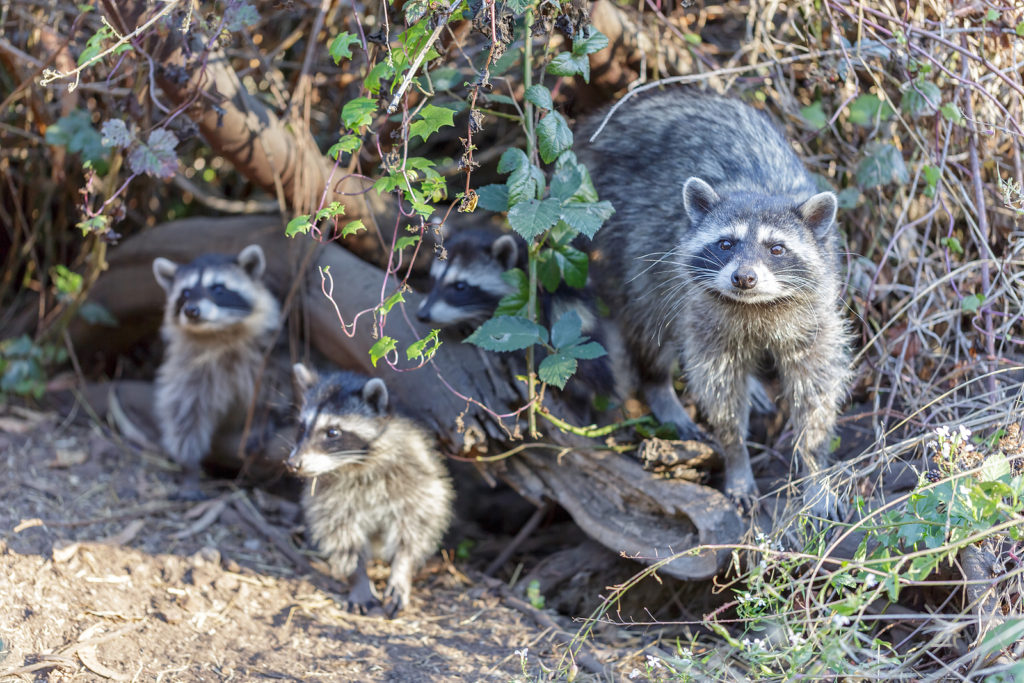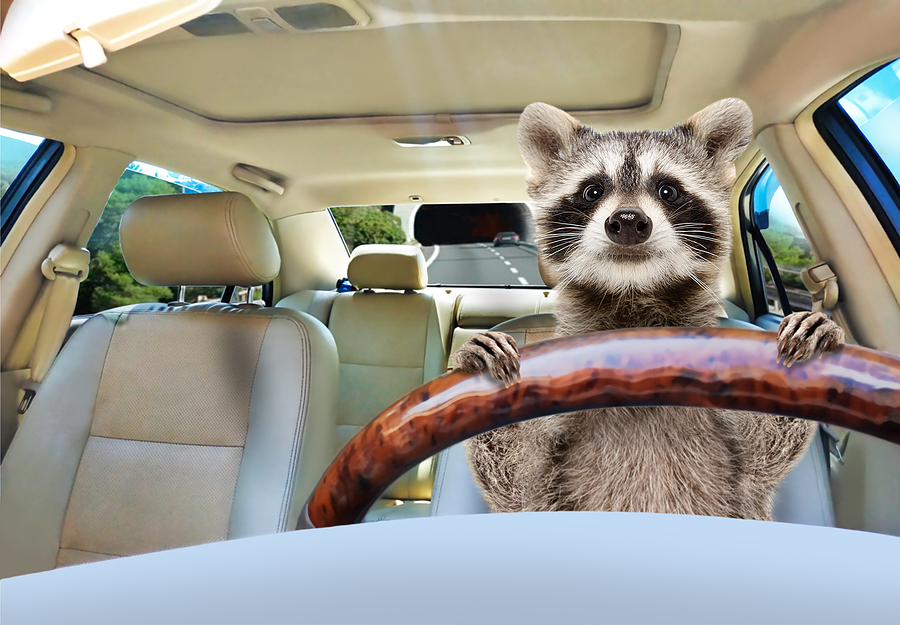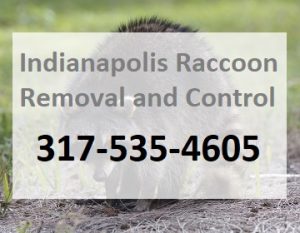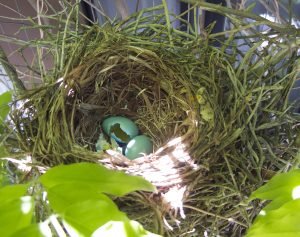Ebola is a dangerous and scary virus. So, when another news story of an outbreak or occurrence airs, it is natural for the community to be fearful. Many people assume that Ebola is carried and transmitted by dirt, pest-like animals, such as raccoons and bats. Namely with raccoons, there is a lot of misconceptions about the illnesses they commonly carry and transmit, and how. If you are spotting raccoons in your neighborhood, do not fear. Just contact a local animal removal service for assistance.
In the meantime, continue reading to learn the truth about wild raccoons and the Ebola virus, including facts you need to know and methods of raccoon control you can use.
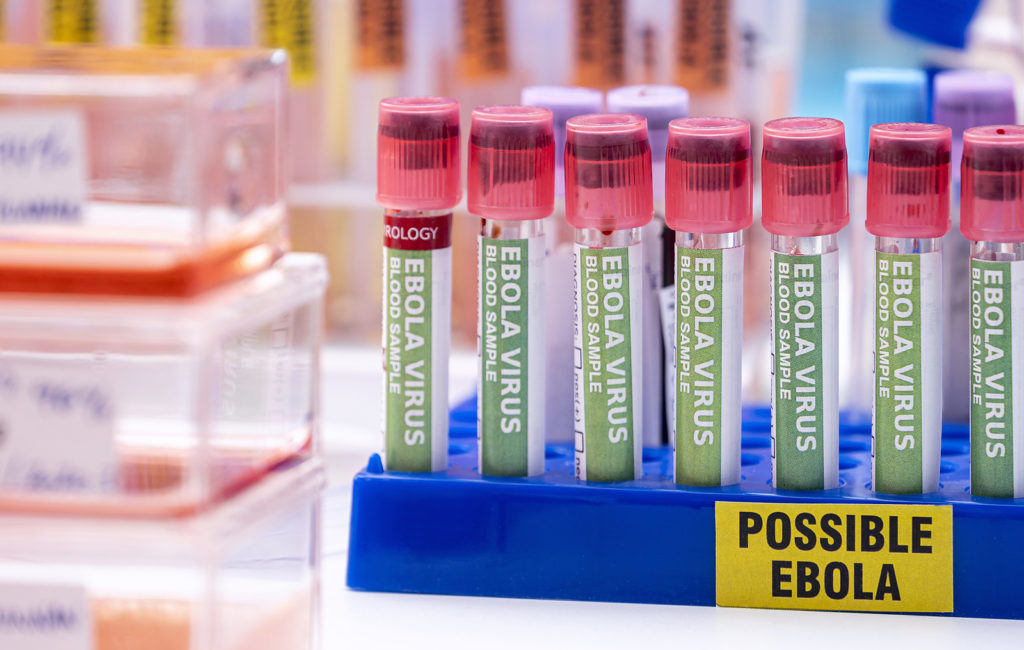
Learn About Raccoons and Rabies
The rumors of raccoons and the Ebola viruses being connected in some way mostly have to do with the comparisons made between Rabies and Ebola. Rabies is a common, life-threatening disease that is publicly linked to raccoons because raccoons, and bats, are species of mammals that most often carry the virus, or become infected with it. The reason why Rabies and Ebola have been discussed together is that they share a lot of similar qualities. Both viruses are nearly lethal for humans, and most certainly lethal for other animals, like dogs and cats.
Since they are equally dangerous, they are equally feared as well, giving them something else in common. Also, it is difficult to become infected by these viruses. Not only is the likelihood small, but the chances of coming in contact with such virus is rare. Unlike colds and flu viruses that can be spread through respiratory transmissions, a person, or animal, must have direct contact with the bodily fluids of an infected subject. It cannot be contracted through a simple cough or sneeze. One major difference, on the other hand, is that Ebola has the capacity to evolve and change, whereas Rabies does not.
How to Manage Raccoons Around Your Area
A person should not be scared to contract the Ebola virus from a raccoon, considering there have been no reports of such events taking place. But people should always beware of raccoons because they commonly carry contagious and infectious diseases that can kill or injure a living being including pets. If you spot a raccoon on your property, contact an Indianapolis raccoon removal company for immediate service. It is strongly suggested for homes near wooded areas, or city areas, to raccoon-proof your property to avoid a raccoon problem in the future.
Are you seeing too many raccoons around your house each night? Contact Indianapolis Raccoon Removal at 317-535-4605 for prompt and professional Indianapolis raccoon removal services you can trust.
You Should Also Enjoy:
How to Spot the Signs of Rabies in a Raccoon
Do Raccoons Eat Other Animals?
Why You Do Not Want to Make a Raccoon Your Pet


